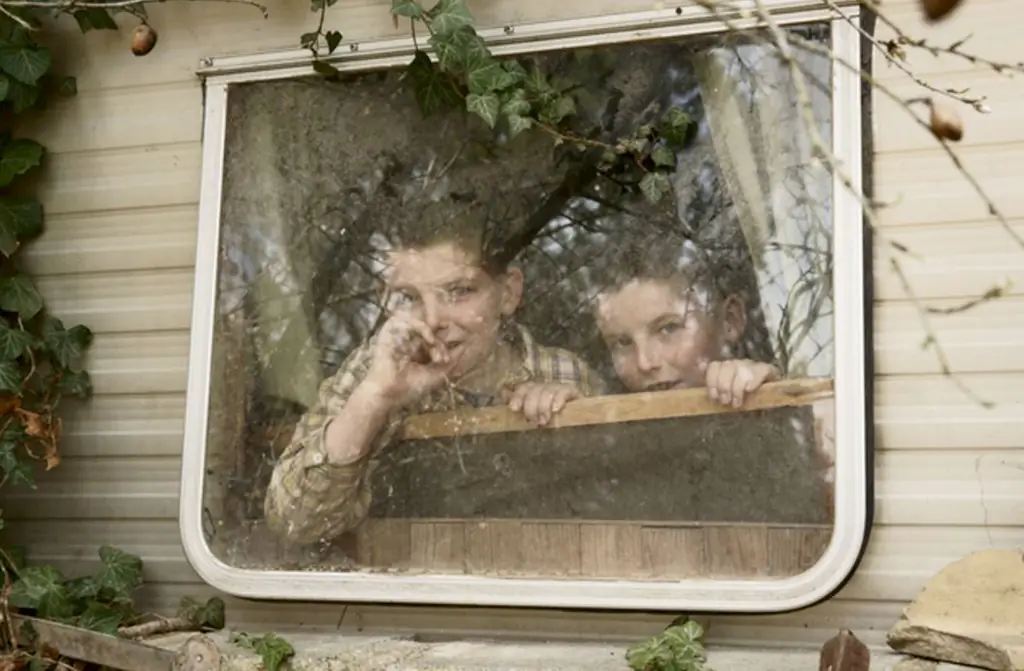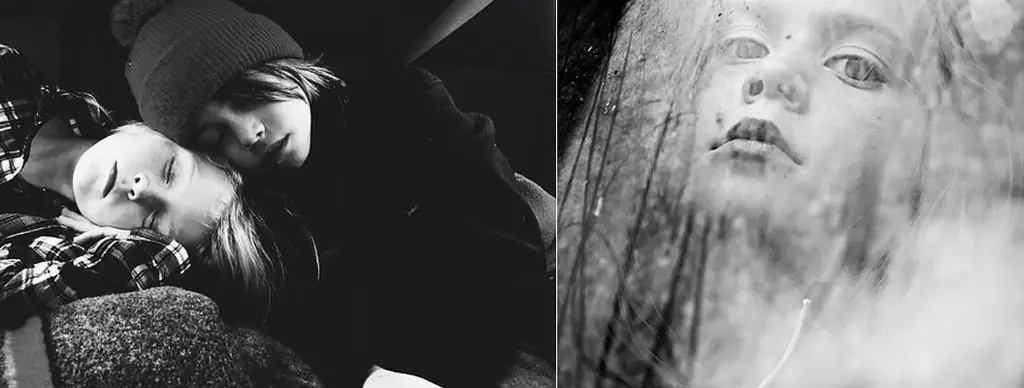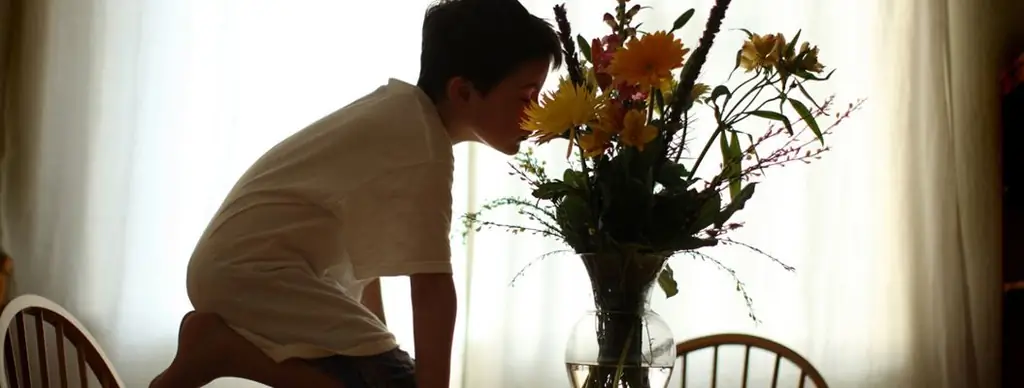- Author Adrian Jeff [email protected].
- Public 2023-12-17 05:06.
- Last modified 2025-01-24 14:09.

How does a child develop in an orphanage
A careful analysis of the development of a child in an orphanage allows us to observe that almost all abandoned children are lagging behind in development. But the patterns discovered by the system-vector psychology of Yuri Burlan show that in complete families, if children lose their sense of security and safety, they experience similar problems in behavior. They begin to behave in the same way, although the child is not in an orphanage.
Question from Nadezhda, Moscow:
“Yuri, how then does the development of a child in an orphanage take place? After all, children from the orphanage do not have a sense of security and safety !!! Is there really nothing you can do?"
Victoria Vinnikova, math teacher answers:
Nadezhda, thank you for bringing up a difficult and painful topic for many. Your question about how a child develops in an orphanage worries teachers, psychologists, doctors, and just caring people.
Many hearts bleed when they just think about how it is possible to develop in such difficult conditions? What kind of injuries does the fragile psyche of children who end up in an orphanage receive? The question arises, how to ensure the development of the psyche of a child in an orphanage when they are deprived of the most important thing? The fact that no material goods replace.
The answers to these questions are given by Yuri Burlan's System-Vector Psychology, which reveals the peculiarities of the psyche and the conditions for the harmonious formation of the personality even in the conditions of the development and upbringing of children in an orphanage.
This article will be useful to everyone who is related to the development of children in an orphanage: teachers, psychologists, educators, volunteers and even sponsors and patrons.
Features of the development of children of the orphanage
Teachers and psychologists conduct a thorough analysis of the development of the child's psyche in an orphanage and identify some patterns. In particular, all researchers notice a developmental lag in the child of an orphanage.
When a child is just born, it's just a small bundle of desires - to eat, drink, breathe, sleep. But for his development he needs a foundation and a foundation that mothers care gives. In terms of Yuri Burlan's system-vector psychology, this is called a sense of security and safety. The feeling of this security allows the baby to open up to the maximum during the period of development and knowledge of the world.
A careful analysis of the development of a child in an orphanage allows us to observe that almost all abandoned children are lagging behind in development. But the patterns discovered by the system-vector psychology of Yuri Burlan show that in complete families, if children lose their sense of security and safety, they experience similar problems in behavior. They begin to behave in the same way, although the child is not in an orphanage.
Children of orphanages are a priori deprived of this most important psychological component, which is why psychosexual development is delayed, there are difficulties in speech development and a complete list of other negative manifestations in children well known to teachers, educators and psychologists of orphanages.
To overcome this lag, options are proposed for creating a family atmosphere in order to somehow compensate children for the absence of parents. But in most cases, a huge staff of educators, psychologists, medical professionals and volunteers use common or average methods for everyone. A systematic approach works with the innate features of the development of the psyche of children in orphanages, and each child has his own. It turns out that it is suitable for one child of an orphanage, it is disastrous for another.
In addition, the false idea is popular that such children are genetically predisposed to drug addiction, drunkenness, theft, that socially unrealized people with health problems grow out of such children.
System-vector psychology of Yuri Burlan shows very accurately that this is a delusion, and with the correct systematic approach, the mental development of a child in an orphanage occurs normally.

Features of personal development of children in orphanages
The entire development of a child proceeds according to his innate vectors, and children also show their negative traits according to their vectors.
It is precisely because of the lack of a sense of security and safety that children from orphanages begin to lie, steal, fight, bite or show other signs of deviant behavior from early childhood.
Finally, these manifestations have been accurately studied, and most importantly, the internal mechanisms and reasons for the occurrence of such conditions in any children are shown. This helps to formulate systemic recommendations for teachers, educators, psychologists in order to correct the development of the child in the orphanage in time.
Understanding the psyche of a child in an orphanage
What to do? What is the use of developing skills, teaching and nurturing if there is no mother's warmth? System-vector psychology of Yuri Burlan helps to give the children of orphanages a foothold in the face of competent system specialists. After all, the most important support for a child of an orphanage is an understanding of his mental makeup, his innate talents and abilities by the adults around him.
Any child is driven by his desires. And the system-vector psychology of Yuri Burlan reveals to us the hidden unconscious mechanisms of the desires of a child in an orphanage. Any child is born with a given set of vectors. Let's take a closer look.
Individual plan child development program in an orphanage
There are naturally nimble, agile, nimble, dexterous children. Such properties of the psyche are possessed by guys with a skin vector. The innate internal program filters all their actions through profit-benefit, production and economy filters. And in order to obtain and preserve, it is necessary to "spin", which is why the main unconscious desire in the skin vector from childhood manifests itself in movement, speed, rhythm.
It is best to identify such children in the sports sections and at the same time track them so that their development proceeds on the rise.
It is these children who, when they lose their sense of security and safety, begin to "get" candy, toys, money. And adults perceive this as theft and begin to ascribe to a small child some kind of malicious intent, which he did not have.
By nature, he has an innate desire for prey. A small child with a skin vector is born a thief, and develops into an athlete, businessman, legislator. You just need to understand all the stages of its development.
In contrast to the nimble and agile children, there are slow, detailed children who in no case should be rushed, otherwise they begin to be stubborn, pout and take offense. In childhood, with a loss of a sense of security and safety, such guys can be aggressive, fight, bite. This is how their unconscious desires, which underlie the anal vector, manifest themselves.
Features of the development of a child in an orphanage
Any child always develops from simple to complex - a little thief must become an engineer. If teachers and educators, volunteers and psychologists take into account the innate characteristics of the personal development of children in orphanages, then negative manifestations can be removed.
When drawing up an individual development plan for children in orphanages, it is necessary to take into account that developmental methods and games must be selected in accordance with the innate properties of the child of the orphanage. A kid with a skin vector needs to develop logic, organizer skills and instill discipline. And to a leisurely child, offer needlework, reading and assistance in teaching younger ones. This is how we set a positive direction for development, the taste of joy from using our talents for the benefit of others.

It is very easy to follow the innate talents of children, to offer them new tasks. For example, thoughtful children with a sound vector can be taught to play chess and provide them with their own corner for this, where they will be in peace and quiet.
And emotional children with a visual vector must be given the opportunity to express their feelings on stage (songs, dance, performances). This is how the talent and abilities of everyone will develop, which is especially important for the children of orphanages.
Moreover, adults who work with children in orphanages will themselves experience incredible pleasure from their work, because the results of their efforts will be predictable, and the methods of pedagogical influence are accurate. The task of teachers is to help these innate talents open up and guide them in a positive direction of development.
Education and development of children in an orphanage
By itself, an individual plan for the development of a child in an orphanage in accordance with a systematic approach is already a lot. After all, the child of the orphanage feels understood, "correct", necessary, and therefore will reduce the need to attract attention with destructive behavior.
It should be noted the achievements of Soviet pedagogy: "Pedagogical Poem" by Makarenko and "Republic Shkid". Their ingenious findings are fully confirmed by the latest studies of the system-vector psychology of Yuri Burlan.
Indeed, when a child loses a sense of security, he tries to survive by obeying instincts. So, unconsciously, guys naturally flock into flocks. Moreover, if there is no guiding guidance of teachers, these flocks can really turn into gangs.
But as soon as a good educator appears, this flock self-organizes in the correct way, a real children's team is formed according to the adult type. Thus, the children of the orphanage form a positive experience of interaction with others, which they will carry into adulthood.
When this happens through role-playing games, where teachers set a high moral guideline, then naturally a collective sense of security and safety is formed, which contributes to the harmonious formation of each personality.
All efforts of teachers, psychologists, volunteers and helpers of orphanages should be aimed at creating this atmosphere that can provide a child with a sense of security and safety and contribute to his socialization.
Naturally, it will be easier for such a child to find a place in any other team. Of course, in any case, there will be some peculiarities, but this step will help to minimize the risks.
We give a fulcrum to the next generation
In orphanages work caring people, enthusiasts of their business. Teachers and psychologists worry and root for every child.
System-vector psychology is a unique tool in the hands of educators and psychologists. It allows you to avoid experiments on children with educational methods. You should not hope for the best in relation to the child of the orphanage or compose in your head some kind of happiness for him. You need to know exactly what exactly this child from the orphanage needs for the best development and subsequent adaptation to adult life.
We have an accurate understanding of the entire range of its development. And, accordingly, adults accurately see all possible potential of talents and abilities given to a child of an orphanage from birth.
Taking into account the individual characteristics of the personal development of children of children in orphanages, with the help of Yuri Burlan's system-vector psychology, it is possible to achieve sustainable results and successful adaptation of inmates of orphanages to life in society.
Learn more about the features of the modern generation of children, about raising a child in a family and a team at free online trainings on systemic vector psychology by Yuri Burlan. Register here.






